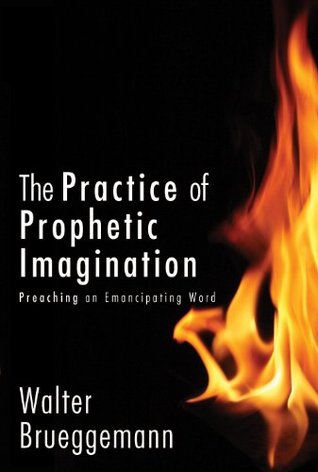More on this book
Kindle Notes & Highlights
the great prophets of Israel only rarely addressed specific social issues and generally were not advocates for particular causes, as is the case with much liberal prophetic preaching today.
the prophets “aim beyond and beneath specific issues to the underlying governance of YHWH and the profound way in which Jerusalem must come to terms with that governance” (p. 60). I
“the prophetic is not, contrary to some conservative views, a matter of prediction. Nor is it, contrary to some liberal views, a nagging or a scolding or righteous indignation about social justice” (p. 132
True prophetic preaching is witness, affirmation, proclamation that God is, that God reigns, and that God does not abandon or forget.
God cannot be contained in human thought and rhetoric, even theological thought and rhetoric.
The prophetic tradition, on the other hand, proclaims a God who is an active agent, who is manifestly present in the life of the world and is always up to the business of creating newness. “I am about to do a new thing; do you not perceive it?” (Isa. 43:19). It
The future preacher will live in a world different from our own, in a culture rapidly changing in front of our eyes, and for those of us who are at home in the United States, in a nation that has sustained very significant loss. At the moment the U.S. economy is in shambles, a credit crisis narrowly averted but not addressed.
Those are new realities for the next generation of preachers to confront. Brueggemann uses the categories of denial and despair to describe it. Nostalgia for the world we lost is palpable: the ritual singing of “God Bless America” is, Brueggemann says, a plea to give us back the world we have lost.
Our culture is inclined to hurry past loss and grief, to rush too quickly to resolution. “Everything will be all right,” we assure ourselves, when everything is not at all right. The best and most sensitive of us know this in our preaching and pastoral care. But no one is immune to the deep inclination to “get over it” and move on. The prophets know about loss and grief, and Brueggemann supplies a wealth of textural material to illustrate.
Walter Brueggemann reminds that there is always also a movement toward hope. It is not an add-on: hope is not a belated afterthought. Hope is “intrinsic to the prophetic message” (p. 111). The
The practice of prophetic imagination is, this good book reminds us, a decision to believe and trust that God reigns. It is to imagine the world as God intends it and as God works to bring it about. It is never to deny or hurry past loss and grief. It is to remember—always—that “weeping may linger for the night, but joy comes with the morning” (Ps. 30:5b).
“Prophetic preaching,” undertaken by working pastors, is profoundly difficult and leaves the preacher in an ambiguous and exposed position. The task is difficult because such a preacher must at the same time “speak truth” while maintaining a budget, a membership, and a program in a context that is often not prepared for such truthfulness. Indeed, given the seductions and accommodations of many congregations, not to mention larger judicatories in the church, such venues are often not readily venues for truth-telling.


